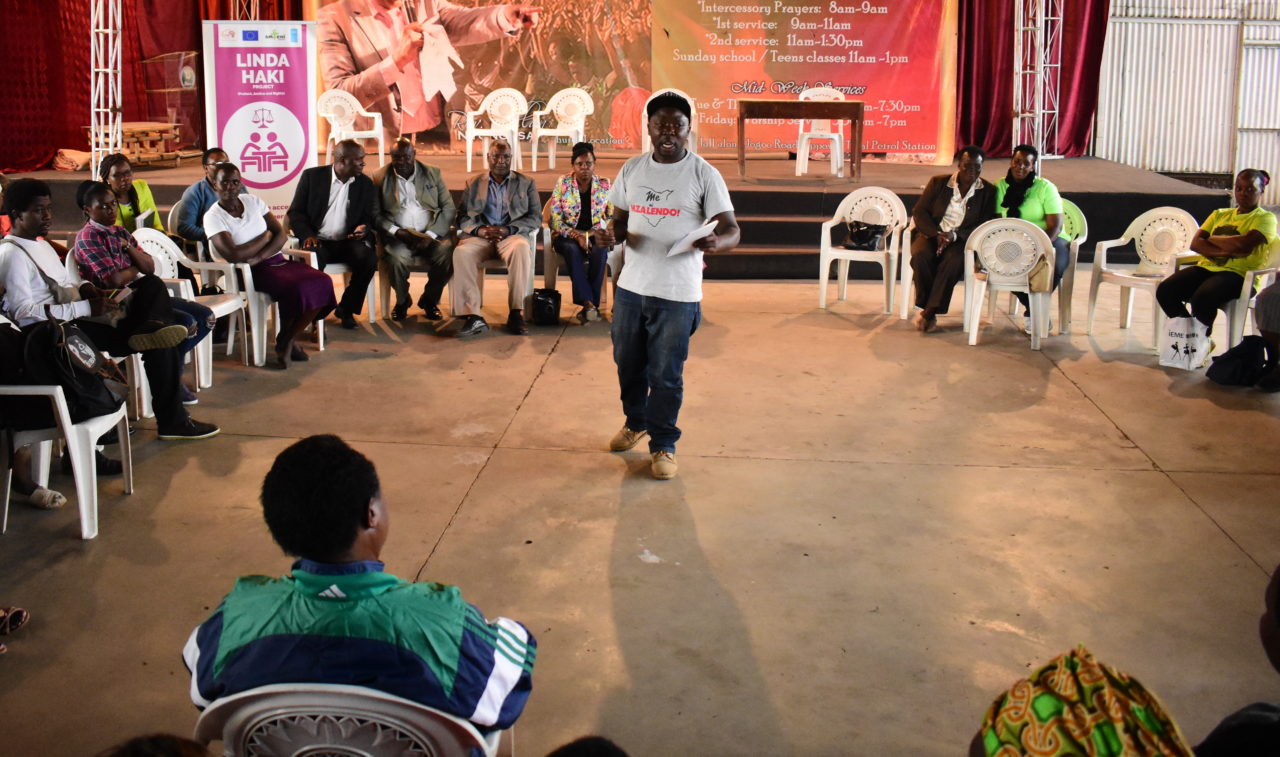Thursday afternoon, men and women are gathered at the Tom Mboya Hall in Makadara to converse on rather difficult subject that is mostly unspoken in the households, the silence is even louder among the communities.
Tom Mboya Hall is synonymous with community gatherings that called for liberation in the clamour for independence in Kenya. And so, I gather that the ground where we are seated is symbolic enough; from the conversation, freedom calls- it is a day to let free and openly talk about domestic violence and by extension, other forms of gender based violence.
But first, a skit is dramatised…
“The play is set in a household with a family of six. The couple in their fifties at first paints a picture of a happy home but behind the scene, the husband is involved in a romantic affair with a 19 year old who is also in a romantic affair with the son.
After awhile, the wife is made aware of the husband’s meanderings and the home turns chaotic with revelations of HIV infections.” –for a minute, a sharp silence follows, the melancholic faces connotes the realities that women and girls are forced to contend with in the various households.
Slowly and slowly, the murmurs transitions into a buzz of discussions. Ken Odaga a Community Champion leads the conversations.
From the conversations, it emerges that silence around gender violence makes women and girls more vulnerable and often compounds their sufferings. Today is a day to break the silence; notes Odaga.
Odaga, a long time resident of Makadara understands that the stigma around gender based violence (GBV) has contributed greatly to survivors not speaking out on their perpetrators and hence they are not able to get justice and heal from the harm done to them.
“In the conversations, we are making communities aware of their rights and the existing GBV related laws. This is a sure way of ensuring communities are involved in actions that addresses the vice,” he says.
Odaga also explains that, the skits makes it easier to communicate what would have otherwise been difficult to talk about given the social norms around issues like intimate partner violence that exists among communities.
The conversations are spearheaded by community champions under the Linda Haki project implemented by CREAW in partnership with the United Nations Development Programs.
The Linda Haki project aims at educating communities on their rights as provided for in the constitution to enable them seek legal redress and stem out gender based violence in Nairobi’s informal settlements of Kibera, Kamukunji and Makadara.
Under the project, Odaga and 60 other community champions were trained on the existing legal frameworks and GBV. From the knowledge, they have taken the initiative locals within their localities.
“Following the dialogues, community members are now opening up and debunking the myths around intimate partner violence and supporting survivors to deal with the violations,” says Odaga.
The community conversations have also instilled a growing interest among community members on the available laws that protects women and girls from gender violence.
Writing by Christine Ogutu



